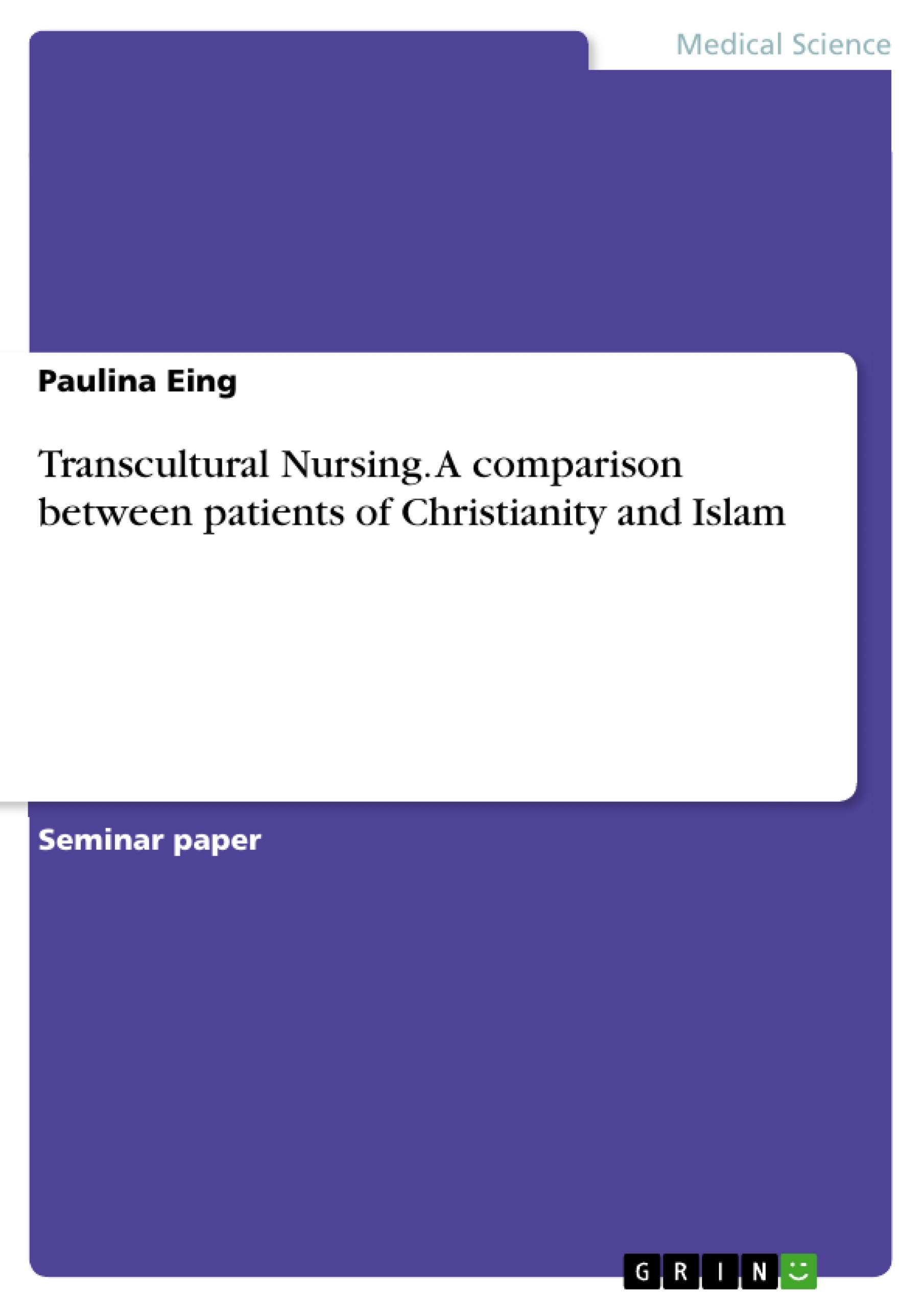In the following the term culture is defined and the model of the cultural dimensions of Hofstede is presented. A definition of the concept of Transcultural Nursing follows and a model of the founder M. Leininger's is presented. Subsequently, the differences in the care of Christian and Islamic patients are exemplarily described.
Globalisation and strong migratory movements mean that today every person is confronted with different cultures. In medicine, these changes are also noticeable. The medical care of patients takes place across cultural borders, which requires a corresponding perception of cultural differences on the part of the nursing staff. But also, the ability to incorporate the associated cultural changes into their professional competencies. Not only migrants from a group of foreign patients, but also business travellers or tourists, health tourists or migrants living in the country.
The biggest problem, the care of culturally different patients is not the language barrier. This can, for example, be solved by an interpreter. It is much more difficult to understand each other if there are different cultural concepts, attitudes or views of life which prove to be important factors for successful care. Great challenges are, among other things, different views on family structures, understanding of roles, the status of women or religiously determined food prohibitions or touch taboos.
Transcultural nursing is a central topic dealing with such challenges in care. Overall, the ability to recognise, understand and respond to the needs of different cultural groups and individuals is a major challenge. The aim of transcultural nursing is thus to be able to integrate the skills for such care into everyday working life in a suitable way.
Inhaltsverzeichnis (Table of Contents)
- Introduction
- Cultural competence in health care
- Culture
- Cultural dimensions by Hofstede
- Transcultural Nursing by Leininger
- Religious Comparison
- Christian patients
- Islamic patients
- Conclusion
Zielsetzung und Themenschwerpunkte (Objectives and Key Themes)
This paper examines the concept of transcultural nursing by comparing the care needs of Christian and Islamic patients. It aims to highlight the importance of cultural competency in healthcare and to demonstrate how cultural differences can impact patient care.
- Cultural competency in healthcare
- Transcultural nursing and its application
- Cultural dimensions and their influence on patient care
- Religious differences in healthcare practices
- The importance of understanding cultural perspectives in providing effective care
Zusammenfassung der Kapitel (Chapter Summaries)
- Introduction: The paper introduces the growing need for cultural competency in healthcare due to globalization and migration. It emphasizes the challenges of providing culturally sensitive care, particularly in situations involving different cultural concepts, attitudes, and worldviews.
- Cultural competence in health care: This chapter defines the term "culture" and introduces Hofstede's model of cultural dimensions. It further explores the concept of transcultural nursing as proposed by Madeleine Leininger, highlighting the importance of understanding and responding to the needs of diverse cultural groups.
- Religious Comparison: This section provides a comparative analysis of the healthcare needs of Christian and Islamic patients. It focuses on key aspects that may influence the delivery of care, such as religious practices, dietary restrictions, and family structures.
Schlüsselwörter (Keywords)
This paper focuses on key concepts such as transcultural nursing, cultural competence, cultural dimensions, religious differences, healthcare practices, and patient care. The discussion explores the challenges and opportunities associated with providing culturally sensitive and effective healthcare services to diverse patient populations.
Frequently Asked Questions
What is Transcultural Nursing?
It is a nursing specialty focused on providing culturally sensitive care by recognizing and responding to the unique needs and values of diverse patient populations.
How do Hofstede's cultural dimensions apply to healthcare?
Hofstede's model helps nursing staff understand different cultural concepts regarding authority, family structures, and communication styles, which are vital for effective care.
What are specific care needs for Islamic patients?
Key considerations include religiously determined food prohibitions (halal), touch taboos, prayer times, and specific views on gender roles during medical examinations.
What are the challenges for nurses in a globalized world?
Beyond language barriers, nurses must overcome cultural misunderstandings regarding attitudes toward life, death, and family involvement in the healing process.
Who founded the concept of Transcultural Nursing?
Madeleine Leininger is the founder and developer of the transcultural nursing model, emphasizing the integration of cultural competence into daily practice.
- Quote paper
- Paulina Eing (Author), 2019, Transcultural Nursing. A comparison between patients of Christianity and Islam, Munich, GRIN Verlag, https://www.grin.com/document/462629



